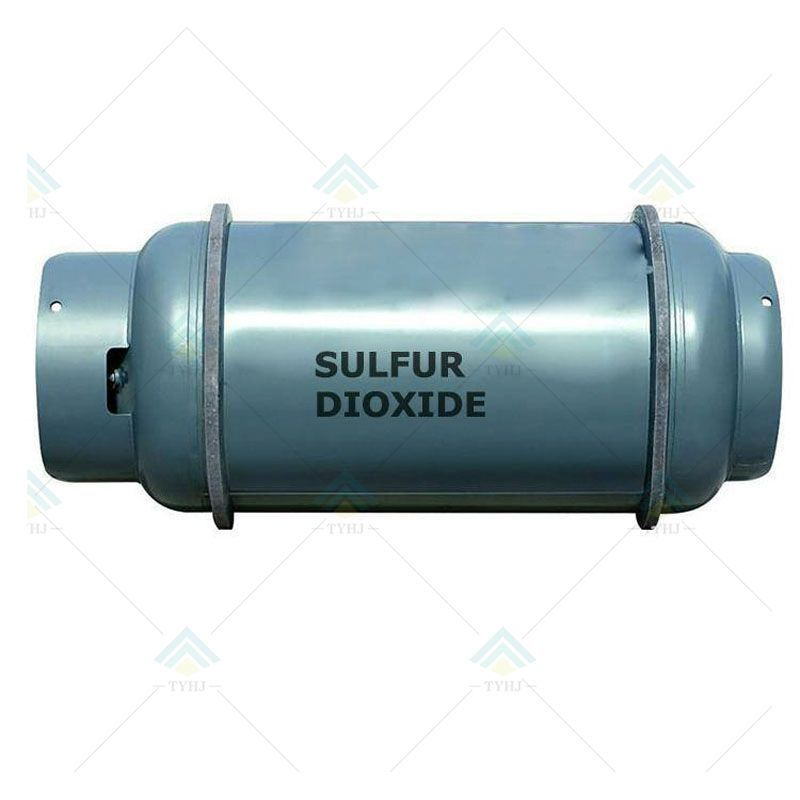Sulphur dioxide (SO₂) is a colorless gas with a sharp, pungent odor that can cause irritation and a sensation similar to shortness of breath. Its primary sources are anthropogenic, particularly industrial emissions from the combustion of fossil fuels and electricity generation, although natural sources such as volcanic eruptions can also release significant amounts of the gas.
SO₂ is chemically stable and is commonly emitted during the burning of sulphur-containing fuels, including coal, oil, diesel, and natural gas. Once released, it readily reacts with atmospheric moisture due to its hygroscopic nature, forming aerosolized compounds such as sulphurous and sulphuric acids.
This gas also contributes to the formation of ammonium sulphate, increasing concentrations of particulate matter (PM10 and PM2.5), which are known to have serious health impacts. Depending on weather conditions, SO₂ can persist in the atmosphere for up to five days and travel over long distances, making it a significant air pollutant.
SO₂ has substantial environmental effects, impacting air quality, water, soil, and ecosystems. Inhalation can damage the respiratory and circulatory systems, posing health risks to humans. In the atmosphere, SO₂ reacts with moisture to produce sulphuric acid, which is a primary component of acid rain. Acid rain adversely affects terrestrial and aquatic ecosystems by acidifying soil and water and altering biodiversity.

Sulphur dioxide (SO₂) plays a crucial role in industrial chemistry, particularly in the production of sulphuric acid, one of the most widely used chemicals worldwide. Its production and consumption are often considered indicators of a country’s industrial development. Due to its high solubility, SO₂ can be converted into acids that serve as effective solvents, decolorizers, fumigants, and precursors for detergents.
SO₂ is extensively employed in the manufacture of synthetic fertilizers, in petroleum refining, and as a raw material for producing various chemical compounds, including sulphates and other acids.
In the food industry, SO₂ has technical applications as a preservative and antioxidant. It is used in products such as juices, jams, dried fruits, and nuts, and in winemaking, it inhibits grape enzymes that cause oxidation, thereby preserving quality and shelf life.
The paper industry also utilizes SO₂ as a bleaching agent for pulp. However, industrial activities involving SO₂—such as paper production, metallurgy, thermal power generation, and the combustion of fossil fuels—contribute significantly to air pollution and climate change.
Transportation sources, including locomotives, ships, and vehicles that burn high-sulphur fuels, are additional contributors to SO₂ emissions.
From a technical perspective, SO₂ is produced by burning sulphur in the presence of air, generating the gas along with minor amounts of other compounds. Due to its toxicity and potential environmental and health impacts, SO₂ emissions must be carefully monitored and controlled.
When sulphur dioxide (SO₂) combines with water in the atmosphere, it forms sulphurous acid, a precursor to acid rain. SO₂ can also react with other atmospheric compounds to generate ammonium sulphates. Its presence in the air is a major factor in the formation of smog—a mixture of smoke and particulate matter commonly observed in industrial regions and large urban areas.
Volcanic emissions are a significant natural source of SO₂. Studying volcanic SO₂ is essential for understanding the dynamics of eruptions and their environmental impacts. High concentrations of volcanic SO₂ can affect climate and air quality, while also influencing cloud formation and moderating global temperatures. For example, studies on emissions from the Miyake volcano have demonstrated that volcanic SO₂ can have substantial and long-lasting effects on air quality, human health, and climate patterns. Continuous monitoring of volcanic SO₂ is critical for assessing these impacts and developing mitigation strategies.
Ambient SO₂ in the air we breathe also poses serious health risks, particularly to the respiratory and circulatory systems. It contributes to acid rain, which damages soil, water bodies, vegetation, and building materials. SO₂ is a potent environmental pollutant with the capacity to alter ecosystems and affect climate.
To protect both the environment and public health, it is essential to minimize SO₂ emissions. Early detection systems and monitoring in industrial and urban areas are recommended to reduce exposure and mitigate its harmful effects on air, soil, water, and living organisms.
Sulphur dioxide (SO₂) is a colorless, pungent gas with significant industrial and environmental relevance. While it is a critical raw material in the production of sulphuric acid, fertilizers, and other chemical products, as well as a preservative and antioxidant in the food industry, its release into the atmosphere poses serious environmental and health risks.
SO₂ contributes to the formation of acid rain, smog, and particulate matter (PM10 and PM2.5), which can harm ecosystems, soil, water quality, and biodiversity. Inhalation of SO₂ affects the respiratory and cardiovascular systems, exacerbating chronic conditions such as bronchitis and asthma. Both anthropogenic and volcanic sources can release substantial amounts of SO₂, with the gas capable of persisting in the atmosphere for several days and traveling long distances.
The dual nature of SO₂—as an industrial ally and an environmental pollutant—necessitates careful monitoring, emission control, and mitigation strategies. Reducing ambient SO₂ levels, implementing early detection systems, and adopting responsible industrial practices are essential to protect public health, preserve ecosystem integrity, and limit climate impacts.